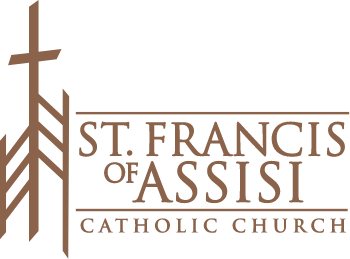As parents, we have the great opportunity to actively shape and guide our children’s spiritual growth. We stand as their initial and primary educators, influencing their development in myriad ways. Among these, involves setting moral ground-rules within the family, well-establishing the importance of morality in their lives.
As in many aspects of life, starting at the origin proves helpful. Establishing the bedrock of morality within the family finds its starting point in understanding our identities in relation to God. We are fundamentally created in the image and likeness of God; an act stemming from His boundless love. This truth not only bestows upon us immeasurable dignity but also sets us apart as unique amongst all of God’s material creation.
Our essence as humans finds its roots in God, unaltered by our actions, affiliations, or any external factors. Recognizing this immutable identity, unearned and constant, becomes the starting place from which we navigate with our moral compass. When a child faces challenges or makes mistakes, it’s vital to address their actions by saying they ‘did a bad thing’ rather than labeling them as ‘bad’ or suggesting they ‘have been bad.’ Though seemingly subtle, this distinction holds significant weight over numerous repetitions over a child’s development years. Separating the action from the individual is the initial step in affirming that, despite any missteps, they are inherently loved while acknowledging that their choice was a wrongful act.
This differentiation between action and identity forms the cornerstone for parents in establishing the moral framework within the family. It underscores the understanding that we all engage in actions—some right, some wrong—yet these actions do not define who we are fundamentally. This differentiation becomes pivotal if children are to embrace belief in the capacity to be forgiven. For us parents, it’s equally essential in confidently holding our children accountable while ensuring our unwavering love for them, regardless of their actions. Moreover, it aids in nurturing the capacity of parents to lovingly hold their children accountable—a seeming paradox in the eyes of the world.
“Conscience must be informed and moral judgment enlightened. A well-formed conscience is upright and truthful. It formulates its judgments according to reason, in conformity with the true good willed by the wisdom of the Creator. The education of conscience is indispensable for human beings who are subjected to negative influences and tempted by sin to prefer their own judgment and to reject authoritative teachings.” (CCC 1783)
Central to assessing moral actions is the task of guiding our children in shaping their conscience. This involves aiding them in recognizing when actions are misguided and assisting them in morally evaluating incidents they encounter in stories/movies, friendships, or within our family circle. Continual guidance in this way will help our children grow tastebuds for virtuous living and grow a preference in choosing the good.
Both fathers and mothers play distinct roles in engaging their children in discussions about morality. Fathers, in particular, can address tangible challenges related to sexual morality, encompassing aspects like the transformations in male development, the significance of respecting/protecting women, combating struggles with pornography. They should also demonstrate resilience in choosing what is morally right, especially during conflicts. It’s crucial for fathers to be vigilant in safeguarding and guiding their children through these complexities. In my household, I dedicated time to researching and implementing protective software for our home computers and mobile devices to uphold these values. Mothers, often excel in providing emotional support and understanding. They offer a nurturing space for their children to express doubts, fears, and uncertainties, fostering an environment where moral discussions can occur with patience and tenderness.
As parents, we shoulder the immense responsibility and privilege of shaping our children’s spiritual and moral journey. Our roles as primary educators, guiding lights, and guardians of their moral compasses are multifaceted. We begin by instilling a deep understanding of our identity in God, where our dignity, love, and uniqueness spring from His boundless grace. This understanding, where actions are separated from inherent worth, lays the foundation for a robust moral framework. It’s a framework built on love, forgiveness, and accountability— qualities essential for navigating life’s complexities. As we guide our children through discussions on morality, conscience formation, and the complexities of life, let us continue to foster an environment of compassion, understanding, and unwavering love. Together, let’s embark on this journey of moral and spiritual growth, ensuring our children grow with a moral compass anchored in faith, love, and a deep understanding of God’s unending grace.
Jeremy Lezniak — SFA Theologians Guild Member

